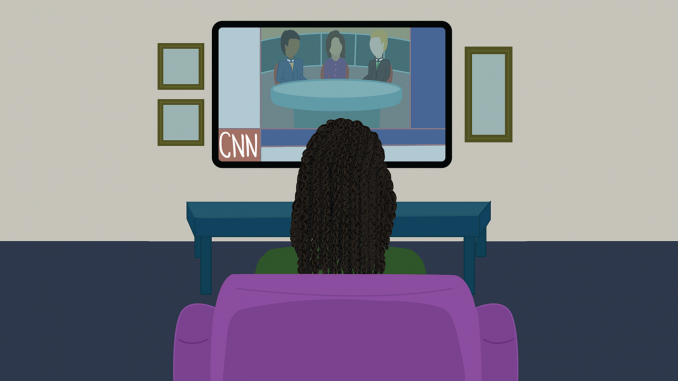
When I was growing up, my mom always stressed keeping CNN on in the living room.
Even if we weren’t paying attention to the TV, she thought hearing it in the background would make us more well-informed and well-functioning adults.
Today, watching CNN all the time feels familiar, and when I’m homesick, I turn it on to feel connected to my family.
But with the presidential election approaching, political commentators on media outlets make distinctions between working-class voters and Black voters, as if the two identities are mutually exclusive.
Reporters justified why Iowa, one of the whitest states in the nation, was first to vote by saying that these voters are everyday working-class people, living in rural America and feeling like they have been forgotten. If we want to know what Black voters are thinking, they said we just have to wait until South Carolina’s primary, where the Black population is one of the highest in the nation.
I felt dumbfounded because, to me, the “Black” experience was the working-class experience. It does not mean that these are not different, my working-class experience should not be discounted or erased because I’m Black.
My life has been a symbol of the intersection between race and class. I have not navigated my life living solely as a Ghanaian American or solely as a working-class person, because I am both.
My family has always been like most working-class families in America. We worried about health insurance, immigration, higher education costs and property taxes.
But what made my childhood special is that I was raised in Worcester, Massachusetts, with the largest Ghanian population in the country. Most of my neighborhood looked like me, ate the same food as me and spoke or at least understood Twi, a Ghanaian language.
As a Ghanian raised in a community like this, my childhood was a racial utopia: I knew I was Black, but I never had to think about it.
I only began to consider it recently because this narrative distinguishing between working-class and Black people was being forced down my throat by political commentators on TV.
I resonated more with discussions about job opportunities, low wages and lower prescription drug prices because those have affected my family.
I guess this is why I never had to really think about my Blackness, because my experience is not what most people associate as the normal Black experience, involving street violence, lower education standards, poverty and broken families.
Therefore, I was so disappointed because the same news station my mom stood by lacked the proper perspective.
As a Black person, my working-class struggles have been my biggest challenges.
I’ve struggled with getting a quality primary education, my family has struggled with housing prices, school prices, health insurance and car and house loans.
Being a part of the working class is not a Black or white issue. Those two are intersectional identities and if anything, my Blackness has only made my working-class struggles worse.
But acting as if my race is separate from my working-class issues is more destructive than acknowledging the effect race and class have on one another.



Be the first to comment